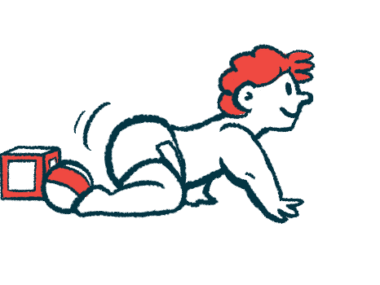What to Expect from Physiotherapy When You Have Pompe Disease
Written by |

People who have Pompe disease likely will need an array of healthcare specialists to help them manage symptoms of their rare genetic condition, which results from the abnormal buildup of glycogen inside cells. That buildup impairs the working of different organs and tissues, particularly the heart, respiratory, and skeletal muscles. A specialist who can help is a physiotherapist.
What is physiotherapy?
Physiotherapy is a science-based healthcare approach that promotes recovery from illness, injury, or disability. Through movement, manual therapy, education and advice, the physiotherapist works to restore movement and functional ability to a patient’s full potential.
Can physiotherapy help me?
Physiotherapy may be able to address some of the symptoms of Pompe disease such as progressive muscle weakness, especially in the legs, trunk, and respiratory system, motor difficulties, breathing problems, and fatigue.
Why do doctors recommend physiotherapy?
Doctors recommend physiotherapy largely to preserve muscle strength in Pompe disease, allowing patients to maintain independence for as long as possible. Because Pompe disease often affects muscles of the trunk, legs, and hips, you might lose balance and fall more often as your disease progresses. A physiotherapist can advise you on how to manage these changes. He or she can also advise on how to stand up after a fall without further injury.
Physiotherapy also can assist in the prevention of secondary impairments such as contracture, deformity, osteopenia, pain, and fatigue. It can help you maintain overall flexibility and mobility, ease joint stiffness, enhance self-esteem, provide motivation, and reduce stress.
What does a physiotherapist do?
Physiotherapists often use exercises, machines, and assistive devices to help with strengthening and teaching new ways to move around and manage daily tasks.
What kinds of treatments should I expect?
A physiotherapist can help by establishing and monitoring a light exercise routine. This may involve walking, cycling, swimming, or strength training. Due to the weakness in your respiratory muscles, you may cough and have trouble breathing, which could lead to chest infections. Chest physiotherapy may be helpful in airway clearance. It employs various maneuvers, devices, and mucus drainage techniques.
The physiotherapist may engage in:
- Gentle strengthening
- Cardiorespiratory monitoring and assistance with airway clearance
- Positioning and alignment
- Muscle stretching
- Adaptive equipment recommendations
- Orthotic intervention
- Gross motor facilitation
Is treatment personalized?
Treatment is tailored to your needs. In collaboration with your family and medical team, you can have a comprehensive plan of care drawn up to optimize function and gain independence.
For more advice and information about Pompe disease and physiotherapy, the International Pompe Association can help find a patient group near you. You also may ask your physician to help you find a physiotherapist who specializes in neuromuscular disorders.
Last updated: May 6, 2020
***
Pompe Disease News is strictly a news and information website about the disease. It does not provide medical advice, diagnosis or treatment. This content is not intended to be a substitute for professional medical advice, diagnosis, or treatment. Always seek the advice of your physician or other qualified health provider with any questions you may have regarding a medical condition. Never disregard professional medical advice or delay in seeking it because of something you have read on this website.


